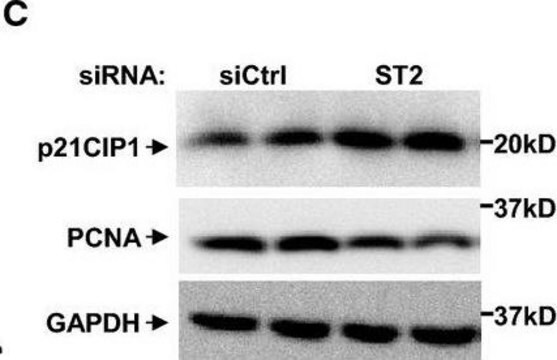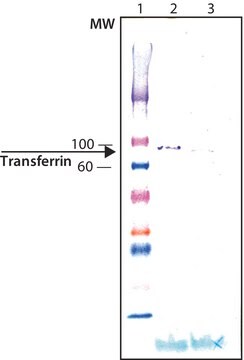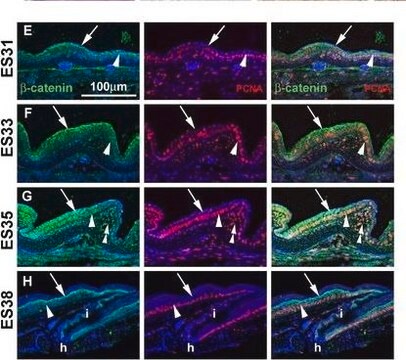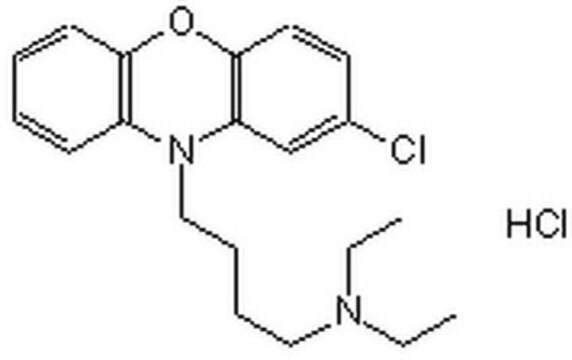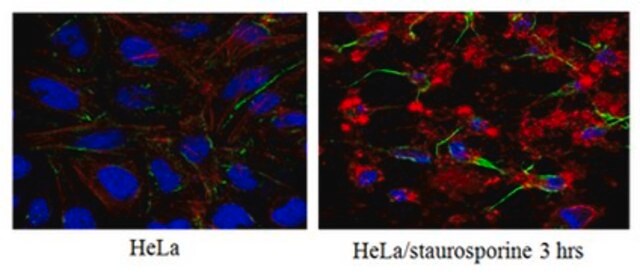05-347
Anti-PCNA Antibody, clone PC10
clone PC10, Upstate®, from mouse
About This Item
Productos recomendados
origen biológico
mouse
Nivel de calidad
forma del anticuerpo
culture supernatant
tipo de anticuerpo
primary antibodies
clon
PC10, monoclonal
reactividad de especies
vertebrates
fabricante / nombre comercial
Upstate®
técnicas
immunocytochemistry: suitable
immunohistochemistry: suitable
western blot: suitable
isotipo
IgG2aκ
Nº de acceso NCBI
Nº de acceso UniProt
Condiciones de envío
wet ice
modificación del objetivo postraduccional
unmodified
Información sobre el gen
human ... PCNA(5111)
Descripción general
Especificidad
Inmunógeno
Aplicación
Epigenetics & Nuclear Function
Cell Cycle, DNA Replication & Repair
Calidad
Descripción de destino
Forma física
Almacenamiento y estabilidad
Nota de análisis
Positive Antigen Control: Catalog #12-301, non-stimulated A431 cell lysate. Add 2.5µL of 2-mercaptoethanol/100µL of lysate and boil for 5 minutes to reduce the preparation. Load 20µg of reduced lysate per lane for minigels.
Información legal
Cláusula de descargo de responsabilidad
¿No encuentra el producto adecuado?
Pruebe nuestro Herramienta de selección de productos.
Código de clase de almacenamiento
12 - Non Combustible Liquids
Clase de riesgo para el agua (WGK)
WGK 2
Punto de inflamabilidad (°F)
Not applicable
Punto de inflamabilidad (°C)
Not applicable
Certificados de análisis (COA)
Busque Certificados de análisis (COA) introduciendo el número de lote del producto. Los números de lote se encuentran en la etiqueta del producto después de las palabras «Lot» o «Batch»
¿Ya tiene este producto?
Encuentre la documentación para los productos que ha comprado recientemente en la Biblioteca de documentos.
Nuestro equipo de científicos tiene experiencia en todas las áreas de investigación: Ciencias de la vida, Ciencia de los materiales, Síntesis química, Cromatografía, Analítica y muchas otras.
Póngase en contacto con el Servicio técnico
